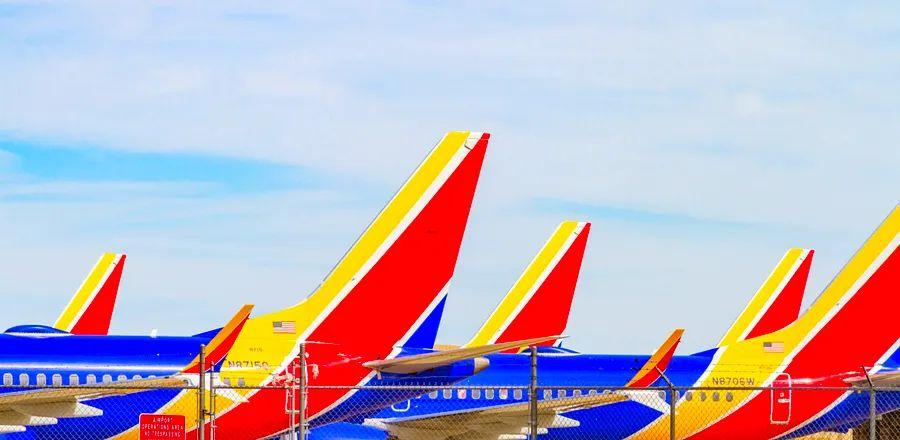Southwest Flights Temporarily Suspended Today—What Went Wrong?

For many travelers, Tuesday morning felt eerily familiar as Southwest paused all takeoffs to address technical issues, reminiscent of the airline's major operational failure during the 2022 holiday season that left millions stranded.
In December 2022, Southwest’s internal systems—particularly those linking pilots and crew with their assigned aircraft—collapsed amid a wave of weather disruptions caused by severe winter storms just as holiday travelers hit the skies. This time, Southwest pointed to 'data connection issues due to a firewall failure.'
Fortunately, operations resumed within an hour on Tuesday (compared to the days it took to resolve the holiday chaos). Although flight delays increased—Southwest was reporting 1,820 delays, or 43 percent of its schedule, according to flight tracking site FlightAware—flight cancellations remained low as of Tuesday morning.
“Southwest has resumed operations after a brief halt in flight activity this morning to resolve data connection issues stemming from a firewall failure. Early today, a vendor-supplied firewall went down, leading to an unexpected loss of connection to some operational data,” Southwest stated in an operational update on its website.
At 10:36 a.m. ET, the Federal Aviation Administration (FAA) alerted travelers via Twitter that Southwest had asked the FAA to pause the airline’s departures.
Shortly after, at 11:10 a.m. ET, the FAA tweeted that “this morning @SouthwestAir encountered a technical issue with one of their internal systems. At the airline’s request, the FAA halted Southwest’s departures while they addressed the problem. The pause has now been lifted and service has resumed.”
Can passengers of Southwest get a refund?
For those impacted by the brief operational pause, Southwest announced that all customers with a flight reservation for April 18 are welcome to rebook in the same class or travel standby (within 14 days of their original travel date between the same origin and destination) at no additional cost.
In response to the situation, U.S. Transportation Secretary Pete Buttigieg tweeted, “We are committed to ensuring passengers have robust protections when airline disruptions like this affect their plans.” He urged travelers to check out the U.S. Department of Transportation’s newly launched Airline Customer Service Dashboard, which offers information on what compensation they may be entitled to when flights are canceled or delayed.
According to the dashboard, Southwest has committed to rebooking passengers at no extra charge for significant delays (which they have already confirmed they will do), providing a meal or meal voucher for delays exceeding three hours, and offering hotel accommodations (including transfers to and from the hotel) for those affected by overnight delays.
Regarding the possibility of travelers receiving a full refund due to a significant delay (they can certainly do so if a flight is canceled by the airline for any operational reason), the DOT notes that “consumers are entitled to a refund if the airline makes a significant schedule change and/or causes a major delay and the consumer opts not to travel.” However, the DOT does not define what qualifies as a “significant delay.”
“Whether you qualify for a refund depends on various factors—including the length of the delay, the duration of the flight, and your specific situation,” the agency explains, emphasizing that it will assess refund eligibility for significant delays on a case-by-case basis. Therefore, for those who believe they have experienced a significant delay, it may be worthwhile to file a complaint with the DOT to explore refund options.
This recent technical issue at Southwest follows the airline’s cancellation of around 16,700 flights during the holidays, impacting over 2 million passengers. In response to the chaos, Southwest CEO Bob Jordan issued several apologies to customers and offered various forms of compensation, including a substantial mileage increase. In January, Jordan committed to allocating about $1 billion to enhance IT systems.
In a statement to Dinogo in January, a spokesperson for Southwest mentioned that technology upgrades are already in progress, stating, “We have gained even more insights from the December events to help prevent future disruptions.”
According to industry insiders, insufficient investment in outdated technology contributed to the issues Southwest faced in December, a problem mirrored at the governmental level. After Southwest's significant tech failure, the FAA suffered a computer crash on January 11, leading to an unprecedented near-total shutdown of U.S. airspace since the September 11 attacks in 2001. This glitch affected the agency’s 'Notice to Air Missions' (NOTAM) system, which relays essential safety alerts to pilots regarding conditions like runway closures or military airspace restrictions. Although the grounding lasted only a few hours, over 11,000 flights were delayed or canceled as a consequence.
Congress members and the Transportation Department have been conducting hearings and pledged to investigate the causes of events like Southwest's December 2022 operational collapse—and to determine what corrective measures airlines should implement in light of such recent technical failures.
Reporting contributed by Barbara Peterson.
Evaluation :
5/5



